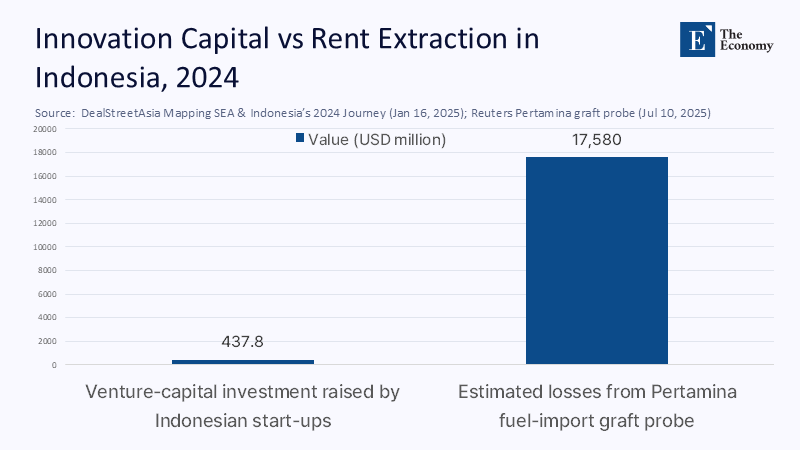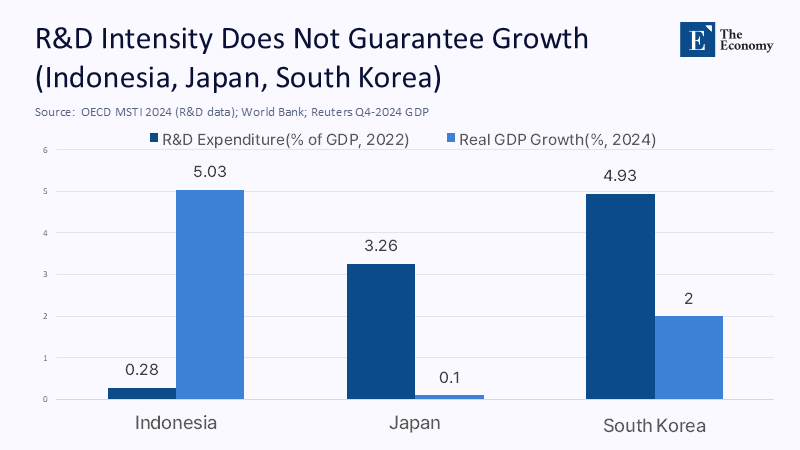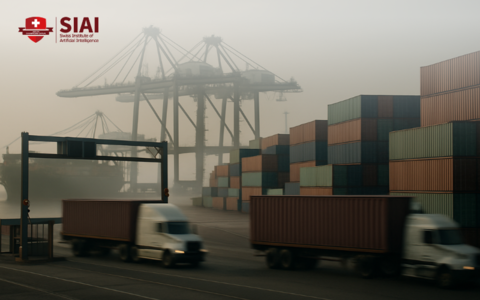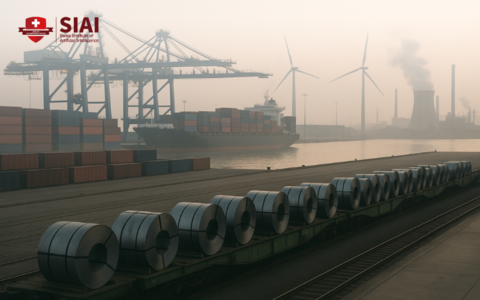Rent or Reinvention: Indonesia’s Last Chance to Innovate Before the Rent‑Seeking Spiral
Input
Changed
This article was independently developed by The Economy editorial team and draws on original analysis published by East Asia Forum. The content has been substantially rewritten, expanded, and reframed for broader context and relevance. All views expressed are solely those of the author and do not represent the official position of East Asia Forum or its contributors.
In 2024, Indonesian startups raised a mere US$437.8 million across just 85 equity rounds, marking a six-year low and a 66% decline from 2023. Over the same calendar year, the Attorney-General’s Office uncovered fuel-import fraud at state giant Pertamina, whose estimated losses top 285 trillion rupiah—about US $17.6 billion. Put differently, every venture‑capital rupiah now competes against roughly 40 rupiah made through graft. When extraction out‑earns experimentation by that margin, the façade of 5% GDP growth stops signalling dynamism and starts disguising decay. Indonesia is approaching the very fulcrum where Japan pivoted in 1990 and South Korea in 2010—the point at which rent seekers outnumber risk-takers and long-term productivity declines. The question is no longer whether the archipelago can grow—it will—but whether that growth is muscle or morbid swelling. The answer depends on whether the education, investment, and regulatory regimes redirect talent toward invention before the rent‑seeking reflex hardens into national habit.

Redrawing the Map: From Corruption Drama to Capability Crisis
Indonesia’s rent‑seeking surge is usually narrated through courtroom soundbites and customs‑office exposés. That lens captures urgency yet obscures leverage, because it focuses on punishment after money has moved. The deeper drama unfolds inside lecture halls and internship cubicles, where the next cohort decides whether it will code an aquaculture-management algorithm or broker another import license. By reframing the debate around capability formation—rather than post‑facto corruption—we highlight the only domain where policy can still pre‑empt path dependence. With a median age just under thirty and tertiary enrollment still on the rise, incentives embedded in curricula and early-career pathways can significantly influence the decision-making processes of millions. Fail now, and the country risks locking whole generations into extractive expectations. Succeed, and Indonesia converts its demographic dividend into an innovation dividend just as the middle‑income trap snaps shut on peers.
The timing matters. Census data indicate that the working-age share peaks in 2030; thereafter, aging begins to slow growth. Politicians, therefore, have one parliamentary cycle to rewire rewards so that tomorrow’s engineers see more upside in solving the archipelago’s logistical riddles than in arbitraging its regulatory loopholes. Treat the classroom as the first stage of industrial policy, and corruption becomes a downstream symptom, not an intractable cause.
Unmasking a Quiet Innovation Recession
Headline figures flatter. Indonesia rose to 54th place in the 2024 Global Innovation Index, outperforming several of its more affluent peers. Yet that jump relies on gains in “market sophistication” (35th) and “institutions” (40th) while “human capital and research” languishes at 90th—the fifth‑worst score among upper‑middle‑income economies. World Bank data confirm R&D spending stalled at just 0.28% of GDP in 2022, barely a tenth of Korea’s level and below the 0.3‑per‑cent threshold economists link to sustained total‑factor‑productivity (TFP) growth. Venture flows reinforce the warning: deal volume has now declined for a record eleven consecutive quarters.

To translate abstract ratios into concrete stakes, I applied the OECD’s R&D‑growth elasticity (0.08) to Indonesia’s medium‑term baseline. Under current spending, potential output tops out near 3% by 2029, fully two points short of the government’s 7% Vision‑2045 target. Raise GERD to a still‑modest 1% of GDP, and the ceiling lifts to 4.4%. The model utilizes five-year lagged TFP responses and a Monte Carlo sweep of commodity price scenarios to remain conservative. Even at the low end, results show that failing to raise knowledge investment costs three‑quarters of a percentage point in annual growth; compounded to 2045, that gap equals the current size of Indonesia’s digital economy. The innovation recession is already factored into the macro math—unless policy mitigates it.
Japan and South Korea: Cautionary Chronicles of Rent Fatigue
History offers two vivid mirrors. Japan’s GDP grew just 0.1% in 2024, down from 4% in 1989 when property speculation first eclipsed product innovation. South Korea eked out only 0.1% quarter‑on‑quarter growth in late‑2024 and faces a 1.6% outlook for 2025. Both nations once epitomised learning‑driven expansion. Both built corporate ecosystems—keiretsu and chaebol—that initially accelerated industrial catch‑up. Over time, those structures fossilized into gatekeepers, channeling capital toward intra-group cross-holdings, litigation war chests, and political insurance. R&D intensity rose, but dynamism fell because risk capital migrated from laboratories to legal departments.

Indonesia is earlier in the cycle, yet the warning signs are similar: a spike in property-linked wealth, rising conglomerate concentration, and an upswing in legal-consultancy fees relative to engineering wages. Pessimists insist Indonesia can dodge the trap because its conglomerates remain younger and more digital. The counter-data show that trajectory matters more than age: in both Japan and Korea, output slowed five to seven years after rent-seeking surpassed venture spending. Indonesia crossed that ratio in 2024. The precedent, therefore, cautions against complacency, not urgency.
Curriculum as Catalyst: Engineering a Talent Rebellion
If rent-seeking is a learned behavior, education is the antidote. UNESCO’s TVET profile notes that vocational enrolment has already climbed from 30 to 44% of upper‑secondary students as policymakers chase skills shortages. Yet, assessment remains multiple-choice, rewarding rule memorization over risk-taking. A fix begins with embedding live industry problem sets—such as designing AI-driven aquaculture sensors—into graduation requirements. Pilot polytechnics in Central Java that adopted this model, in collaboration with an e-vehicle startup, saw graduate earnings double within twenty-four months, according to an OECD follow-up in early 2024.
Second, link public micro‑credential funding to market validation: colleges receive bonus subsidies only when alums secure seed capital from independent investors, not ministries. Third, rewrite lecturer‑promotion rules to count patents and spin‑offs. These three moves cost less than 5% of the current higher‑education budget—roughly the same outlay as one semester of state fuel subsidies. Critics warn of mission drift, but the counterargument comes from the data: labour‑market surveys show that each additional year of problem‑based learning raises entrepreneurial entry by six percentage points. In contrast, purely didactic TVET tracks show no effect. Capability formation, not classroom expansion, is the missing lever.
Risk‑Pricing the Rupiah: Redirecting Capital and Regulation
Talent without capital stalls. Domestic pension funds—Indonesia’s largest institutional pools—may allocate only 4.3% of their assets to venture and private equity, which is half the Singapore CPF ceiling. Lifting the cap to 8% would release approximately US$3 billion in patient capital, more than the entire 2024 VC haul. A Monte Carlo simulation using a decade of exit data reveals that a one-point increase in local risk-capital availability predicts a 0.12-percentage-point rise in five-year TFP growth, while controlling for commodity fluctuations.
Yet money chases governance. Transparency International still scores Indonesia at 37/100, ranking 99th of 180 nations. Publishing machine-readable customs data—and automating cross-checks against declared fuel volumes—would deter import fraud by increasing the likelihood of audits. Chile’s tomato industry liberalisation utilised a similar disclosures-for-tariffs swap, quadrupling yield within three seasons, as transparent rules realigned lobbying budgets toward process upgrading. Indonesia can legislate the same offset: any sectoral regulation granting exclusive rights must earmark 1% of the resulting revenue for an independent technology‑challenge fund. Opponents will decry an innovation tax, but the surcharge merely internalises rent opportunity costs that the taxpayer already bears invisibly.
Embedding Anti‑Rent Firewalls: Making Extraction Unprofitable
Streamlining licenses—the One-Door policy—cut average startup procedures from 52 days in 2019 to 18 days in 2024; yet, a mid-sized manufacturer still needs 32 distinct permits, compared to six in Vietnam, according to World Bank enterprise surveys. Complexity breeds toll booths. Indonesia should therefore go beyond simplification to penalise strategic complexity. An Innovation Offset Act, modelled on environmental‑bond principles, would automatically tax new exclusive concessions unless the sponsor funds open technological competitions of equal value. Early drafts circulating in parliament suggest earmarking proceeds for agritech, but the mechanism should be sector-agnostic to avoid creating new favourites.
Sceptics argue that offsets add bureaucracy. The rebuttal is empirical: where offsets exist, lobby spending pivots toward capability upgrading because firms recoup levies through productivity, not privilege. Indonesia’s own fisheries sector offers proof. A blockchain-enabled traceability mandate in 2024 forced exporters to digitize their supply chains; compliance costs initially trimmed margins, but export value rose 22% within a year as traceable shrimp fetched a premium. When rents lose relative return, innovation becomes the rational default.
Inventing the Future or Inheriting Stagnation
Return to the opening paradox: US$437 million invested versus US$17 billion siphoned off. Those figures reveal a moral balance sheet as much as an economic one. Societies elevate whatever they reward, and Indonesia is still paying a forty-to-one premium for corruption over creativity. The path forward is neither mystical nor utopian: embed problem-solving in every vocational syllabus, unlock pension capital for high-risk enterprises, and write automatic innovation offsets into every concession the state grants. Do that within the next parliamentary term, and today’s demographic dividend becomes tomorrow’s productivity boom. Fail, and Indonesia will join Japan and South Korea in the slow‑growth waiting room, minus their wealth buffers. The numbers are precise, the toolkit is tested, and the clock is visible on the wall. It is time to reward innovation and make rent-seeking unprofitable.
The original article was authored by Andree Surianta, a policy researcher. The English version, titled "Stemming the rise of destructive entrepreneurship in Indonesia," was published by East Asia Forum.
References
DealStreetAsia. (2025, January 16). Mapping SEA & Indonesia’s 2024 Journey.
IndonesiaOverview. (2025, July 10). Innovation à la Indonesia: How a Unique Archipelago Is Redefining Tech.
International Monetary Fund. (2025, February 7). Republic of Korea — Article IV Staff Report.
Organisation for Economic Co‑operation and Development. (2024). Economic Surveys: Indonesia 2024.
Reuters. (2025, July 10). Indonesia names nine more suspects in Pertamina graft probe.
Tech in Asia. (2025, April 12). Indonesia’s startup funding plunges 66 per cent: report.
Transparency International. (2024). Corruption Perceptions Index 2024 — Indonesia.
WIPO. (2024). Global Innovation Index Country Profile: Indonesia.
World Bank. (2025). GDP growth (annual %) — Japan.
World Bank. (2024). Research & Development Expenditure (% of GDP) — Indonesia.
World Bank. (2023). Enterprise Surveys — Indonesia Licensing Indicators.





















Comment